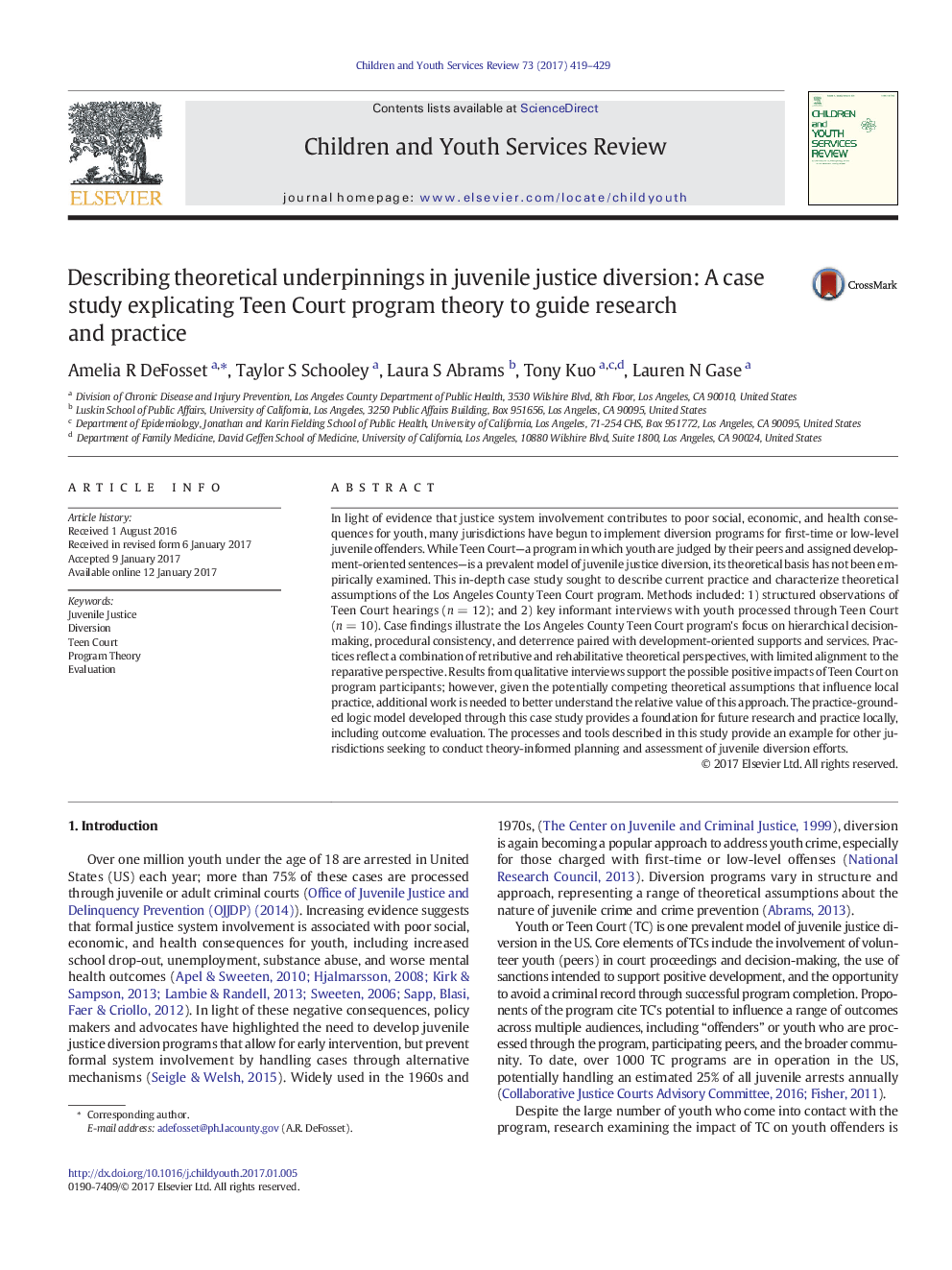ترجمه فارسی عنوان مقاله
توصیف مبانی نظری در انحراف قضایی نوجوانان: مطالعه موردی با هدف توضیح نظریه برنامه دادگاه نوجوان برای هدایت پژوهش و عمل
عنوان انگلیسی
Describing theoretical underpinnings in juvenile justice diversion: A case study explicating Teen Court program theory to guide research and practice
| کد مقاله | سال انتشار | تعداد صفحات مقاله انگلیسی |
|---|---|---|
| 126422 | 2017 | 11 صفحه PDF |
منبع

Publisher : Elsevier - Science Direct (الزویر - ساینس دایرکت)
Journal : Children and Youth Services Review, Volume 73, February 2017, Pages 419-429
ترجمه کلمات کلیدی
عدالت برای نوجوانان، انحراف، دادگاه نوجوان، نظریه برنامه، ارزیابی،
کلمات کلیدی انگلیسی
Juvenile Justice; Diversion; Teen Court; Program Theory; Evaluation;

